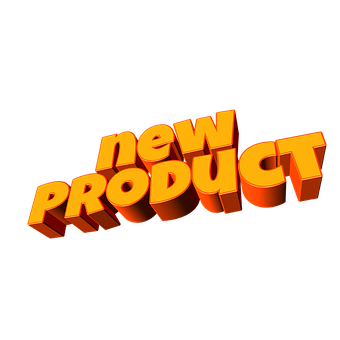B2B marketing and PR types are in no way exempt from the odd bad habit. But I think there’s one trap that’s particularly easy to fall into, even when we know better. What am I talking about? Too often our content is still way too focused on selling products.

In fact, a whopping 93% of B2B marketers tend to connect their content directly to a product or service according to a study by the Economist Intelligence Unit. 75% of those questioned said mentions of their products are a frequent part of their content strategy.
Yet in the same study, 93% of B2B buyers said that the one thing that stops them feeling positively about a piece of content is when it ‘seems like a sales pitch’. 75% said the main reason for seeking out business content was for ‘researching a business idea’. And the most helpful content was something that either presents ‘two sides of a complicated industry issue’, provides insights around ‘what industry peers think about an issue’; or ‘sheds light on an area of my business I wasn’t aware of’.
To me as a PR person, content marketing consists of all the articles, interviews, case studies, infographics, videos and blog posts we create and share. We instinctively know that what chimes best with our clients’ target audiences is the content that helps them solve their problems or fills knowledge gaps. It’s the material that educates, explains, advises and provides useful data or insights.
The content that’s geared towards a clients company and its products and services rarely gets as much attention – unless we’re specifically targeting a lower funnel audience of people who are close to making a buying decision.
Only the other day I read a very candid post from a marketing tech company that admitted it had wasted a lot of time and effort dramatically increasing the number of fresh articles it was posting on its blog. Because, when it analysed the results, it found only the small number of posts categorized as ‘educational’ had received any real traction.
Yet it often feels like content marketers struggle to get away from mentioning the products and services our companies or clients offer.
I get it. It does seem a bit wasteful creating all that content and not ‘shoe horning’ in a few product plugs. And there’s often internal or client pressure to ensure that a company’s products and services have to get a mention (and a link).
In the old days – before every company became ‘a publisher’ and was blogging and sharing its own content – PR for me was mostly about media relations. Back then, we knew that if we pitched material that was filled with product mentions or was overly self-promotional, it would never get past the editors of the titles we were targeting. They kept us in check.
Now that we’re more able to directly reach out to target audiences through owned media, I think we need to work harder on ourselves to police our own content.
I’m not saying content based on products and services is not valuable. It absolutely is. But product brochures, datasheets and posts about your products are mostly only relevant to those who already have an intent to buy. It’s important to connect with these people. But only a small proportion of the target audience will be in buying mode (in-market and actively researching suppliers and products) at any one time.
What about those who aren’t ready to buy or research products yet? They might not even know they have a problem your company can solve. You don’t want to be making overt sales or product pitches to these people because they’ll just ignore you (or quickly develop a negative view of your company). This quote from the Content Marketing Institute’s blog sums it up nicely:
“Most marketing content is overly promotional (and we tune it out) and is pushed just too early in the buying process. Your business needs to get people to know your brand, like your brand, and trust your brand enough to want to buy from you. That starts with a significant amount of early-stage “dating” content. It needs to be non-promotional and not overly creepy. You don’t want to push too hard at this stage because you want to get to a second “date.”